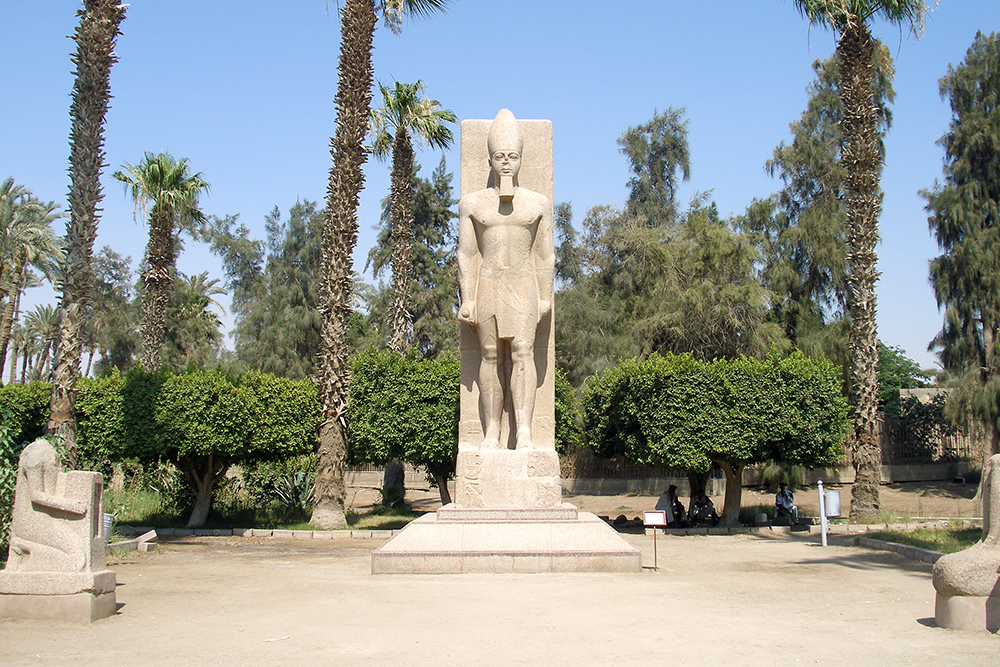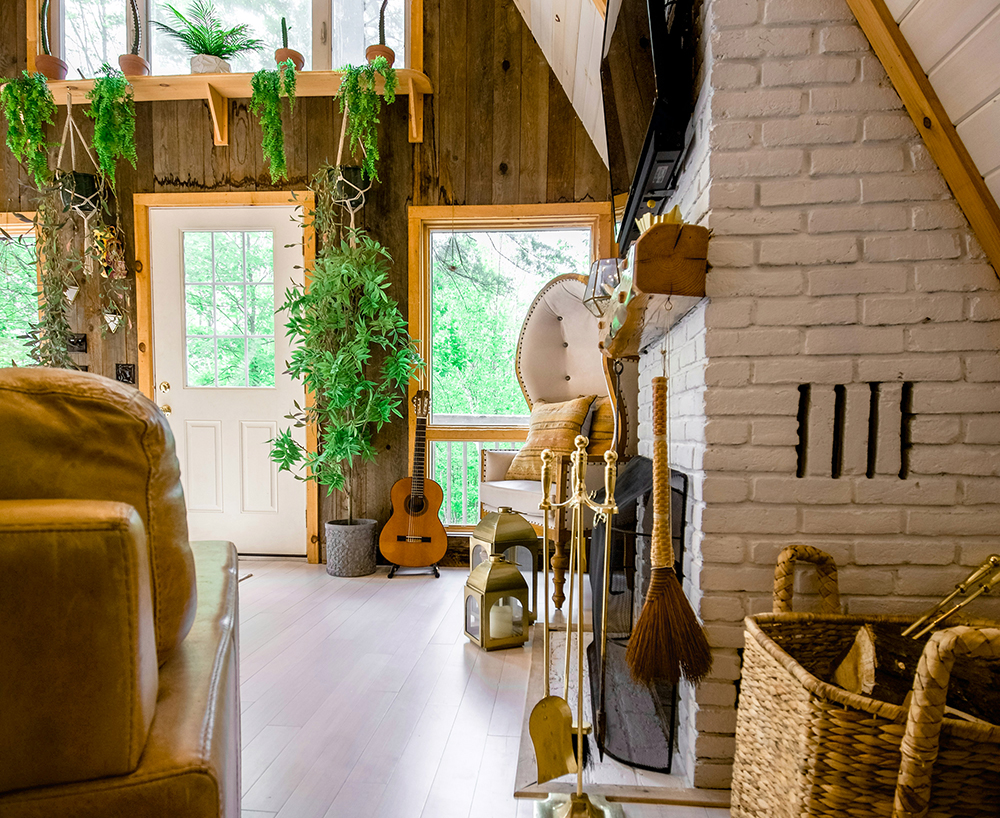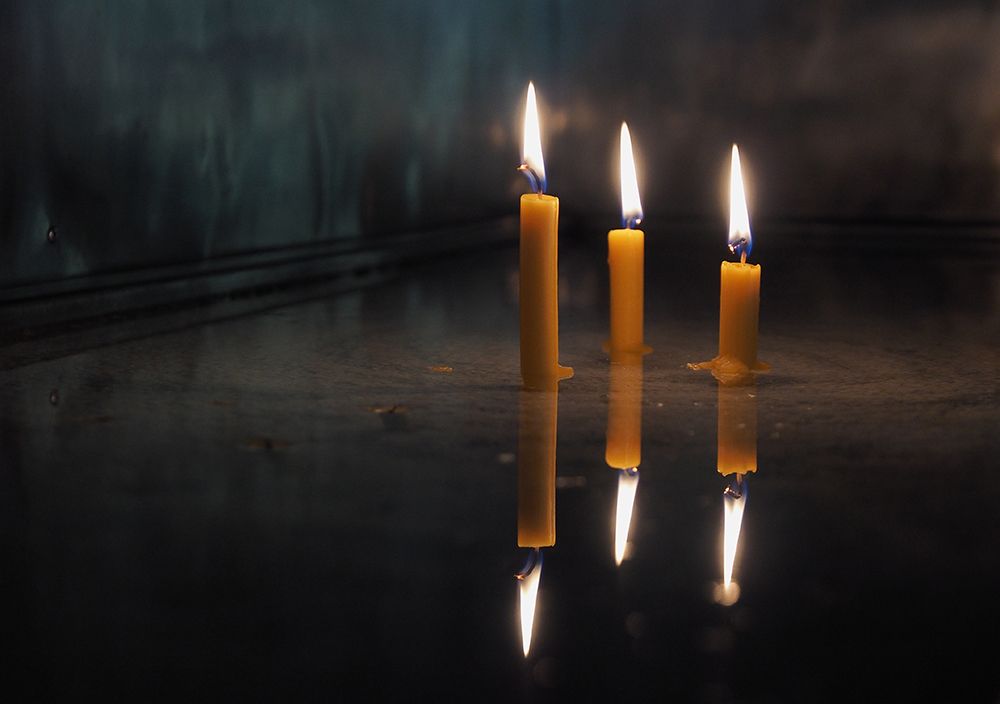Memphis was founded on May 22, 1819, by a group of investors that included John Overton, James Winchester, and Andrew Jackson. It was officially incorporated as a city in 1826. The investors named it after the ancient capital of Egypt on the Nile River, seizing the opportunity to one-up the founders of the newly formed Cairo, Illinois. Memphis was so named in hopes of it one day being the seat of great kings, like its river-adjacent namesake.
Memphis, Egypt, no longer exists as the bustling capital it used to be. Now it is a set of archeological sites practically in the suburbs of Cairo, sitting at the head of the Nile River Delta. The Nile is the only reason civilization exists in Egypt, so its Memphis was strategically placed on the great waterway. Being at the river delta, Memphis was a hub for commerce and trade.
Egypt’s Memphis was the residence of pharaohs and the capital city from the beginning of the dynastic period (approximately 3000 B.C.E.) through the end of the Old Kingdom period and into the First Intermediate Period (approximately 2181 B.C.E.). Even after the capital shifted to other locations, such as Thebes, Memphis remained an important place and religious center. Its temples were among the most important in the country. During the New Kingdom period (approximately 1550 to 1070 B.C.E.), Memphis most likely functioned as the second capital of Egypt. At one time it seems to have been the principal residence of the crown prince, and at least three well-known pharaohs were born there.
Memphis was always one of the most populous and renowned places in Egypt, inhabited by a cosmopolitan community. Its port and local workshops played an important role in Egyptian foreign trade. A reflection of the magnitude and importance of Memphis is the extension of its cemeteries, more than 30 kilometers in length, on the edge of the desert and the western bank of the Nile.
Memphis, Tennessee, our home, sits on the Chickasaw Bluff along the banks of Ol’ Man River. Tennessee’s Memphis is located on the edge of the Mississippi River Delta, although not technically a part of the local river delta like Egypt’s Memphis was. It would be 13 years until its first church was constructed. In 1832, a group of Methodists built a modest meeting house for their congregation. It was the first religious building in the city and still stands today as the First United Methodist Church. Our Memphis has followed in the religious footsteps of its namesake, becoming a hub of religion that has helped shape the country.
Tennessee’s Memphis is also a hub of commerce and trade thanks to our location on the Mississippi River. Memphis has evolved from a storied river port into a dynamic transit hub, seamlessly integrating rail and air logistics, with FedEx at the heart of its global connectivity. Once defined by the Mississippi’s currents, the city now channels commerce across highways, railways, and the skies, solidifying its role as a pivotal nexus in modern trade.
Over the years, Memphis, Tennessee, has paid tribute to its namesake through architecture. Memphis’ oldest known Egyptian tribute is the Ballard & Ballard Obelisk Flour building Downtown, dating back to 1924. The building is filled with Egyptian Revival elements — obelisks, unintelligible hieroglyphics, and three arched entrances resembling those of ancient temples.
In the 1980s and early 1990s, Memphis, Tennessee, underwent a small Egyptian revival. In 1991, the city built its own pyramid. Initially, the Pyramid was built as an event center, hosting concerts, sporting events, and other attractions (remember the “Wonders” exhibits?). Then there is the Memphis Zoo, with its full facade of Egyptian tribute, built to reflect the shape of ancient Egyptian monuments.
I cherish both Memphis, Tennessee, and Memphis, Egypt — each a testament to the enduring spirit of civilization. As a proud Memphian, I appreciate the historical homage woven into my hometown. Take a drive through the Bluff City and see if you can spot its Egyptian revival echoes.
Emily Guenther is a co-owner of The Broom Closet metaphysical shop. She is a Memphis native, professional tarot reader, ordained Pagan clergy, and dog mom.









